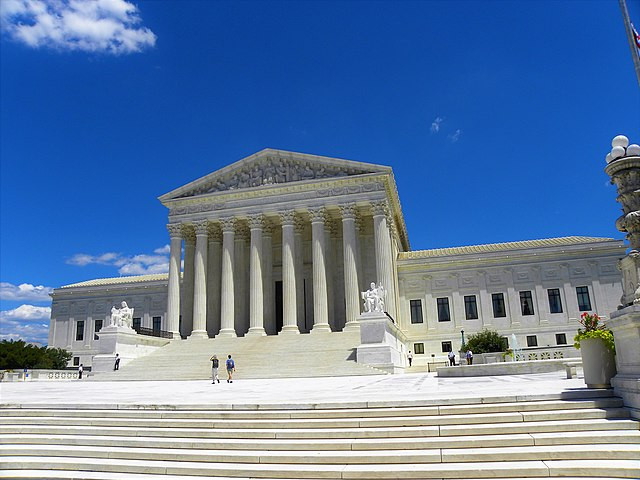The Supreme Court, in a significant decision on Friday, upheld a federal law that prohibits individuals subjected to domestic violence restraining orders from possessing firearms. The 8-1 ruling marks a departure from the court's recent trend of expanding gun rights and is seen as a major victory for the Biden administration, which defended the law amid various legal challenges.
Chief Justice John Roberts, writing for the majority, emphasized the historical precedent of firearm regulations aimed at preventing individuals who pose a threat to others from accessing guns. "Since the United States was founded, our nation's firearm laws have included provisions preventing individuals who threaten physical harm to others from misusing firearms," Roberts wrote. "The provision at issue in the case fits comfortably within this tradition."
The court's decision in this case comes on the heels of a landmark 2022 ruling in New York State Rifle and Pistol Association v. Bruen, which significantly expanded gun rights by affirming the constitutional right to bear arms outside the home. That ruling has prompted a slew of legal challenges to existing gun laws. However, the decision to uphold the domestic violence gun ban indicates that some longstanding firearm regulations are likely to survive despite the expanded interpretation of the Second Amendment.
Attorney General Merrick Garland welcomed the ruling, noting its importance for public safety. "This law protects victims by keeping firearms out of the hands of dangerous individuals who pose a threat to their intimate partners and children," Garland said in a statement.
The case centered on Zackey Rahimi, a Texas man whose ex-partner obtained a restraining order against him in 2020. Rahimi argued that, in light of the Supreme Court's 2022 decision, the federal gun possession restriction should not apply to him. Rahimi's lawyer, Matthew Wright, declined to comment following the ruling.
Erich Pratt, senior vice president at Gun Owners of America, acknowledged that while Rahimi is a "dangerous individual," the ruling could disarm others who have never actually committed any domestic violence. Despite the lopsided vote, with only conservative Justice Clarence Thomas dissenting, the ruling highlighted divisions among the justices regarding gun rights, with five separate concurring opinions shaping future judicial approaches to gun regulation.
Justice Ketanji Brown Jackson, appointed by President Biden after the 2022 ruling, noted the challenges judges face in applying historical tests to modern gun laws. In her concurring opinion, she highlighted the "apparent difficulty faced by judges on the ground" in deciding which gun laws should be upheld.
In his dissent, Justice Thomas maintained that the historical context of firearm regulations at the nation's founding should be determinative. "Not a single historical regulation justifies the statute at issue," Thomas wrote.
Rahimi's case involved several violent incidents, including an assault on his ex-partner and a series of shootings. Despite the restraining order, Rahimi continued to engage in violent behavior, underscoring the necessity of the federal gun ban for individuals under such orders. He ultimately pleaded guilty to violating the federal law and was sentenced to six years in prison.
The Supreme Court's decision underscores a critical aspect of gun regulation in the United States, affirming that individuals who pose a credible threat can be denied access to firearms. Chief Justice Roberts clarified that the Bruen decision did not preclude all forms of gun regulation, especially those aimed at preventing dangerous individuals from obtaining weapons.
President Joe Biden praised the ruling, stating, "As a result of today's ruling, survivors of domestic violence and their families will still be able to count on critical protections, just as they have for the past three decades."
The ruling has significant implications for other federal gun regulations currently under scrutiny, including those barring users of illegal drugs from possessing firearms. One high-profile case involves Hunter Biden, President Biden's son, who is challenging the constitutionality of the federal law under which he has been charged.






